Stop waiting, start writing: Why now is the right time to begin your memoir.

“Too often memories die with their owner, and too often time surprises us by running out,” wrote one of our foremost authorities on memoir writing, William Zinsser.
Speaking candidly about the fact that we have a limited number of days on this Earth can be hard—no one wants to contemplate their death or jinx the happy times we’re living in right now. That’s why we come at it sideways sometimes—like with this quote that I often reference, again from Zinsser, because it inevitably—every time—elicits an emotional response:
“The saddest sentence I know is ‘I wish I had asked my mother about that.’”
That resonates with you, doesn’t it?
It is sad to think our mother’s—or father’s or grandparent’s—stories have died with them.
And one day your own kids will wish they had asked you for more: more stories, more details about your childhood, more names on the family tree. But it’s a simple fact that most times our children don’t value our stories until they are older; they don’t invite conversation about it now—but they will cherish them later.
That’s why it’s so important for you to begin recording your life stories now. Whether you write in a journal, work with a memoir coach, or share your memories during a series of personal history interviews, the time to begin is now.
Don’t worry that you are too young—all your stories matter, and you can always write more later, when you’re older.
Don’t worry that you haven’t lived your full life—we are all in the midst of our narrative, and reflecting upon your stories of the life you have lived thus far is worthwhile. “Every event, and certainly every event worth writing about, will always remain tattooed on our neurons. So it is never too early to start giving those events, which are our lives, a form,” Benjamin Moser has written. “It is a homage we pay ourselves. More solid than a memory, a memoir will outlast it, because until a memory is put into words, it remains mist, never shore.”
Don’t worry that you don’t have enough time to write—there are ways to make the time for something as important as your life story.
And don’t worry that you will have more perspective when you are older: “Of course someone will look back at his first broken heart with a different perspective at the age of 40, or 60, or 80. But that doesn’t mean that these perspectives are better, or that our self-understanding travels toward some telos of perfect consummation with every passing year,” Leslie Jamison wrote. “The narratives we tell about our own lives are constantly in flux; our perspectives at each age are differently valuable. What age gains in remove it loses in immediacy: The younger version of a story gets told at closer proximity, with more fine-grain texture and less aerial perspective.”
So don’t risk not having the time to tell your stories. Preserve them now. As Zinsser suggests, “be a recording angel and record everything your descendants might want to know.” Starting…right now.
Go beyond labels with this powerful memoir prompt: introduce yourself without name, job, or age. Includes writing tips and a free downloadable worksheet.
The three most common excuses I hear for not writing about your life “yet,” and how—and why—to overcome them. It’s not too soon for your memoir, I promise.
Discover how (and why) bending certain grammar rules in memoir and life story writing can enhance voice, rhythm, and authenticity in your storytelling.
Even the most seasoned writer sometimes feels hopeless when they sit down to write and nothing comes. Here, 7 helpful resources for budding memoirists.
Four steps to help you turn spoken stories into engaging written narratives—so once the family history interview is done, you can create a lasting legacy.
Brave the Page by trauma-informed writing coach Megan Febuary shares how to probe memories, write about your hard experiences, and find healing.
You start out with excitement and fervor—blank pages are feverishly filled with stories about your life. But what can you do when your memoir momentum wanes?
By holding as your goal the idea of ‘writing your memoir,’ you are focused too soon on the end goal. Instead, think about writing towards your memoir.
Are you nervous about undertaking a life story project? Working with a personal historian or memoir coach can help alleviate many of the most common fears.
Is there ever really a ‘right’ time to start writing your memoir? There’s not, in my opinion, but here are two questions to ask yourself to help you decide.
Writer’s block can happen to the best of us. This simple idea—keeping a notebook of self-generated writing prompts—will keep your memoir ideas flowing.
Looking for a meaningful gift for your parents? An annual subscription to our Write Your Life memory and writing prompts may be just the thing—or, maybe not.
Learn about our Write Your Life course, providing memory prompts, writing guidance and a dose of inspiration to anyone who wants to preserve their stories now.
Here’s one time I gave in to my client’s preferences that still haunts me: Why we did not identify people in any of the photos in their family history book.
While your memoir is telling your stories in your words, a family tree chart outlining your relationships has a real place in that book—here’s why.
The first draft of your life story is likely to include some stuff you decide to cut later—but should none of your challenges make it into your final book?
Good writing prompts will rid you of blank-page anxiety—and you can easily write your own! Here, 5 steps to drafting a library of personalized memoir prompts.
While a journal called “Memories from Mom” or “Grandma’s Life Story” may be brimming with good intentions, the fact is that most of them remain mostly blank.
While all five of these books add value to any memoirist or life writer’s library, I’ve identified which is best for you based on your goals and experience.
A love letter (or book!) overflowing with memories makes a thoughtful anniversary gift. Here, 14 writing prompts to help you honor—and surprise—your partner.
Wondering if 52 weeks of memory prompts will help YOU write about your life at last? Here, answers to the most commonly asked questions about Write Your Life.
Every week you’ll get themed prompts to stir your memories, tips to write your stories with ease, and more! A unique gift for your loved one (or yourself)!
Sometimes all it takes to get unstuck with your personal writing is paying attention. Here are some easy (fun) ways to come up with journal writing prompts.
Ready to edit your family history or life story book? Follow these three tips from a personal historian to ensure everything is clear for your descendants.
This new book by Ruta Sepetys, You: The Story, is a great tool for those who want to use their own life experiences to inform their fiction writing.
Have you ever thought about what will happen to your diaries—who will read them, how you may one day use them? Join me as I consider this profound question.
Photos that have no captions will leave readers of your heirloom book guessing. Make sure to write captions that either tell a story or provide vital details.
Smells (such as of Mom’s perfume or Grandpa’s grease-stained clothes) and sounds—especially music—can trigger long-buried memories helpful for writing memoir.
Why leave your legacy in the hands of someone else? Try your hand at writing your own obituary with these tips—it just may be the start of your mini memoir.






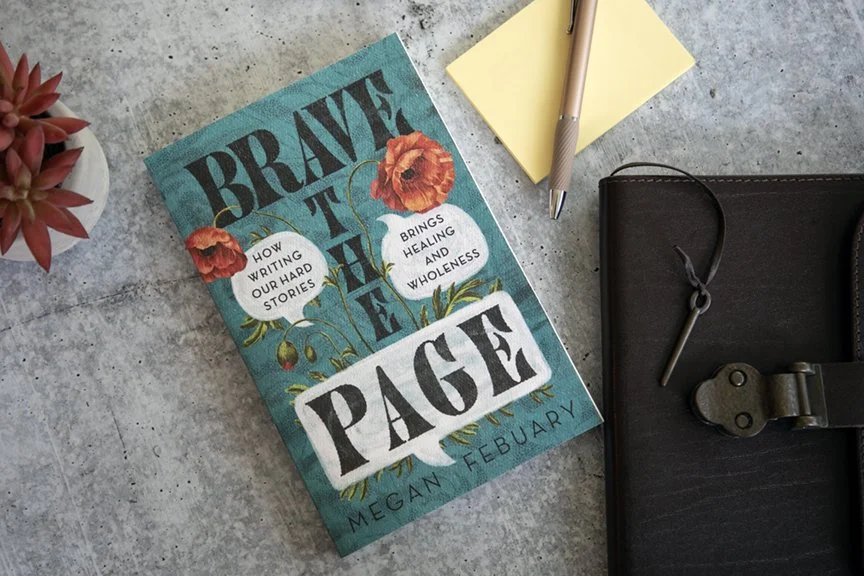


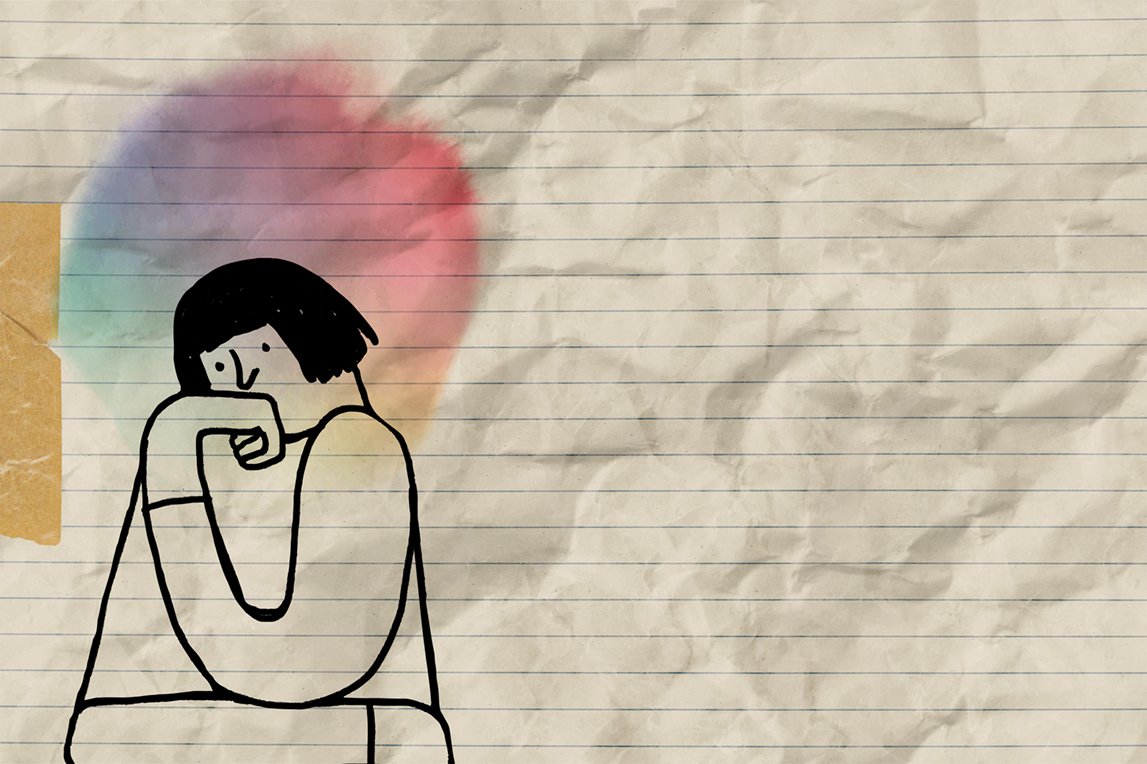



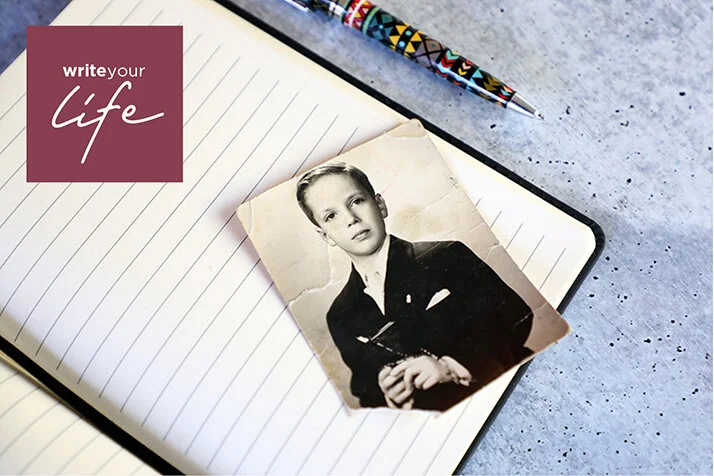









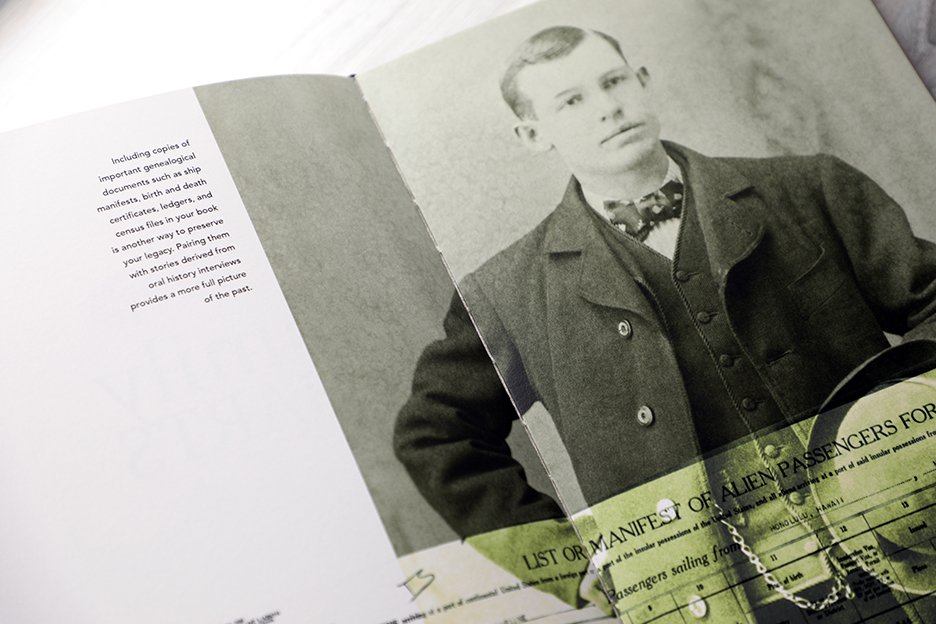




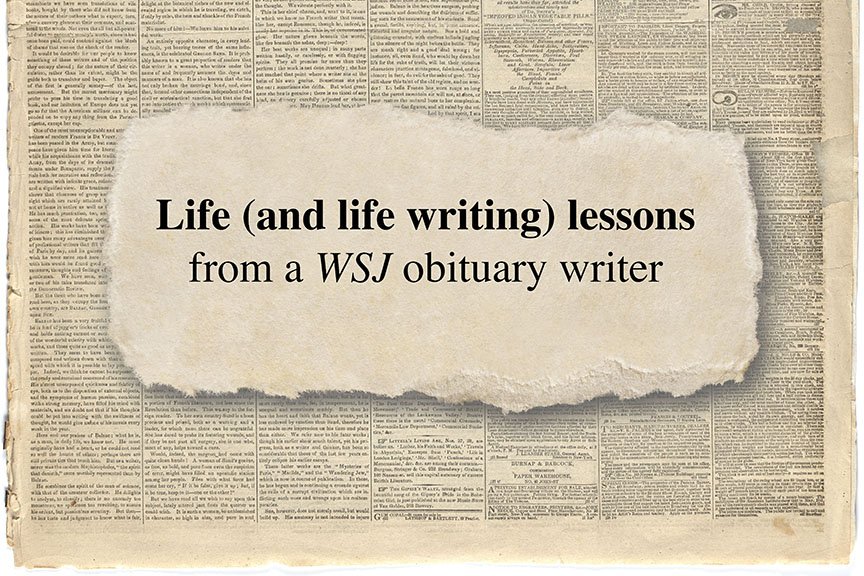
Stay inspired with 52 weekly writing prompts for journaling and family history. Capture memories, dreams, and stories big and small. Bonus: Downloadable guide!